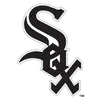
 Tigers
Tigers White Sox
White SoxFINAL
 Tigers
Tigers White Sox
White Sox
FINAL
 Tigers
Tigers White Sox
White Sox
FINAL
 Tigers
Tigers White Sox
White Sox
FINAL
 Tigers
Tigers White Sox
White Sox
FINAL
 Tigers
Tigers White Sox
White SoxFull Schedule
August 2025
Su
Mo
Tu
We
Th
Fr
Sa
27
28
29
30
31
1
2
3
4
5
6
7
8
9
10
11
12
13
14
15
16
17
18
19
20
21
22
23
24
25
26
27
28
29
30
31
1
2
3
4
5
6
8/16
12:00 am
CHSN
8/16
11:00 pm
CHSN
8/17
6:00 pm
CHSN
8/18
11:00 pm
CHSN
8/19
11:00 pm
CHSN
8/20
11:00 pm
CHSN
8/22
11:30 pm
CHSN
8/23
11:00 pm
CHSN
8/24
6:00 pm
CHSN
8/25
11:30 pm
CHSN
8/26
11:30 pm
CHSN
8/27
11:30 pm
CHSN
8/28
11:30 pm
CHSN
8/29
11:30 pm
CHSN
8/30
11:00 pm
CHSN
8/31
6:00 pm
CHSN
9/1
6:00 pm
CHSN
9/2
11:30 pm
CHSN
9/3
CHSN
9/4
11:30 pm
CHSN
9/5
10:30 pm
CHSN
9/6
10:00 pm
CHSN
9/7
5:30 pm
CHSN
9/9
11:30 pm
CHSN
9/10
11:30 pm
CHSN
9/11
6:00 pm
CHSN
9/12
11:00 pm
CHSN
9/13
10:00 pm
CHSN
9/14
5:30 pm
CHSN
9/15
11:30 pm
CHSN
9/16
11:30 pm
CHSN
9/17
6:00 pm
CHSN
9/19
11:30 pm
CHSN
9/20
11:00 pm
CHSN
9/21
6:00 pm
CHSN
9/23
11:00 pm
CHSN
9/24
11:00 pm
CHSN
9/25
11:00 pm
CHSN
9/26
10:30 pm
CHSN
9/27
8:00 pm
CHSN
9/28
7:00 pm
CHSN
White Sox Game Replays










